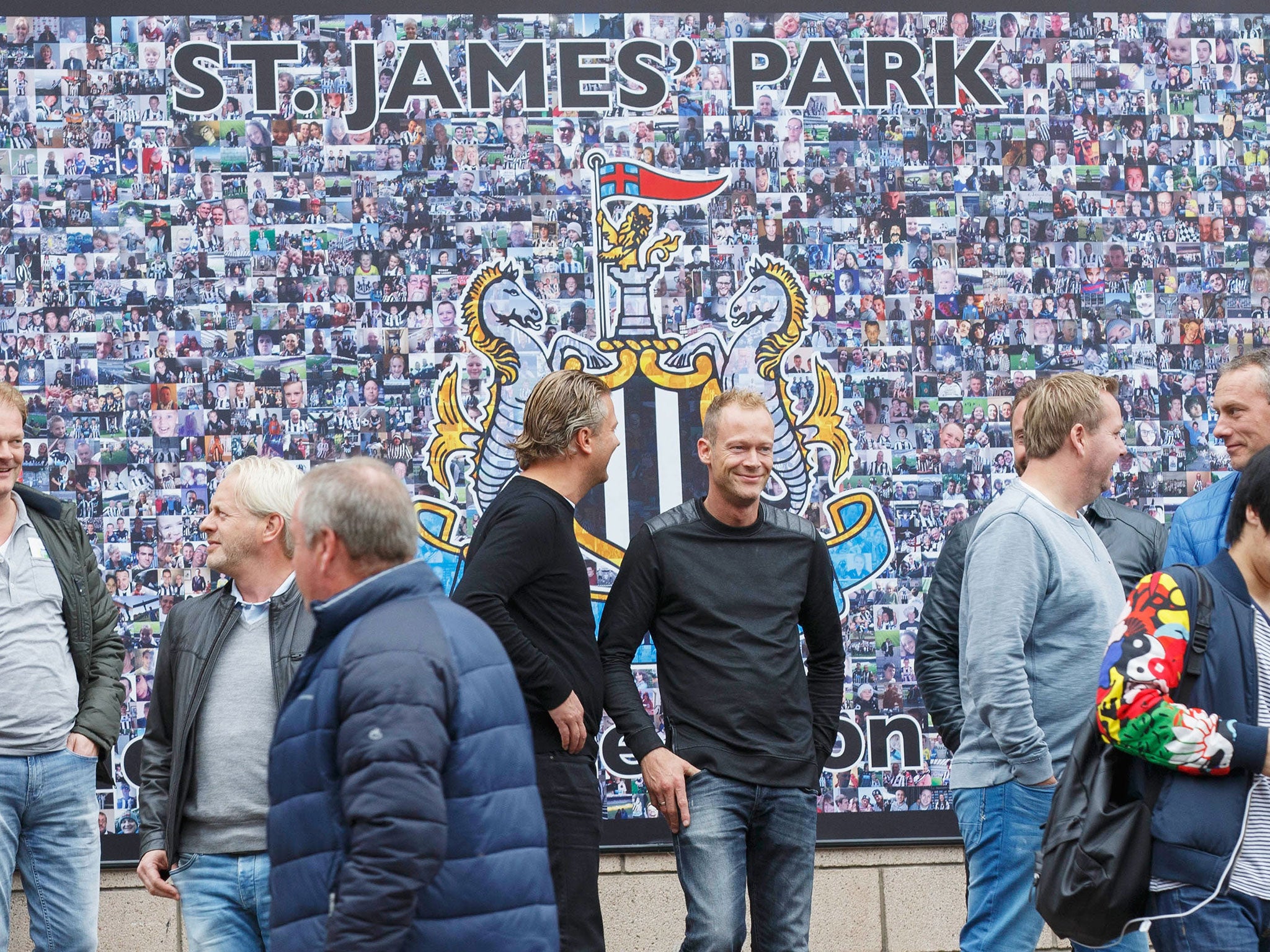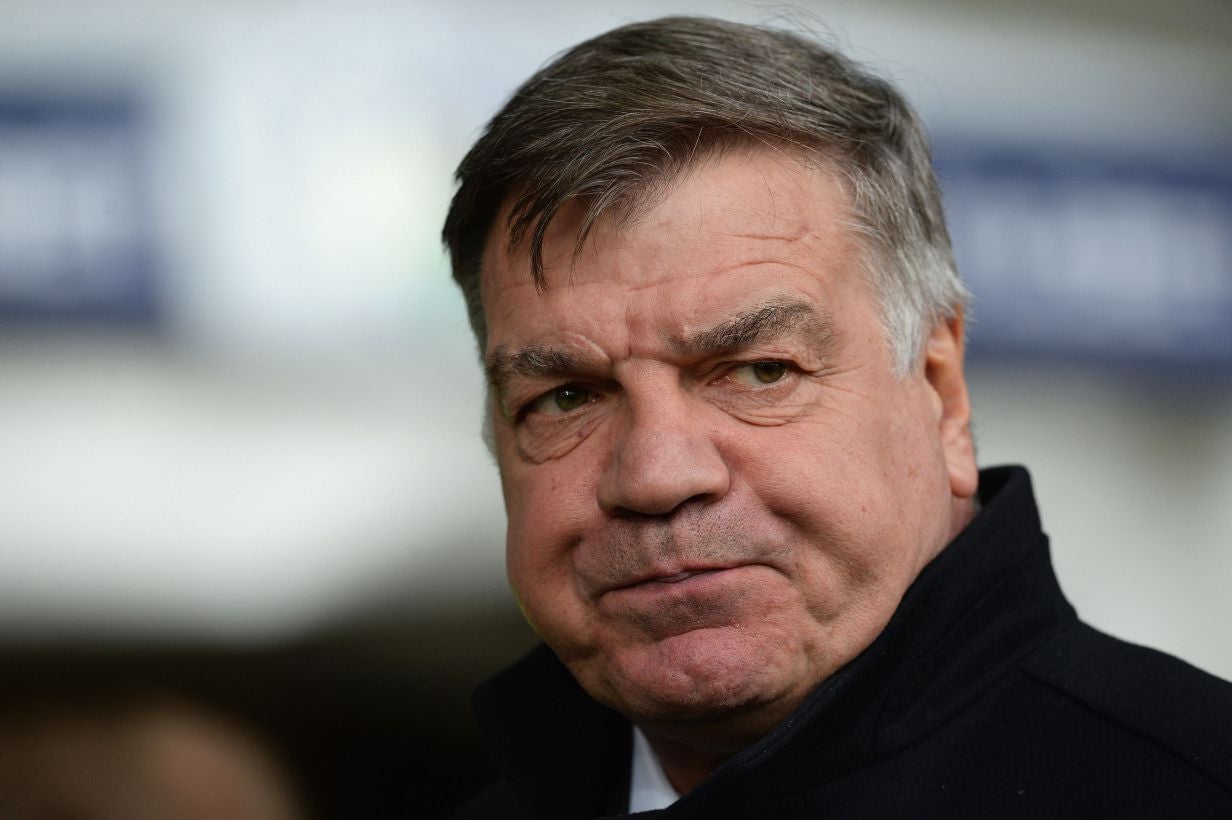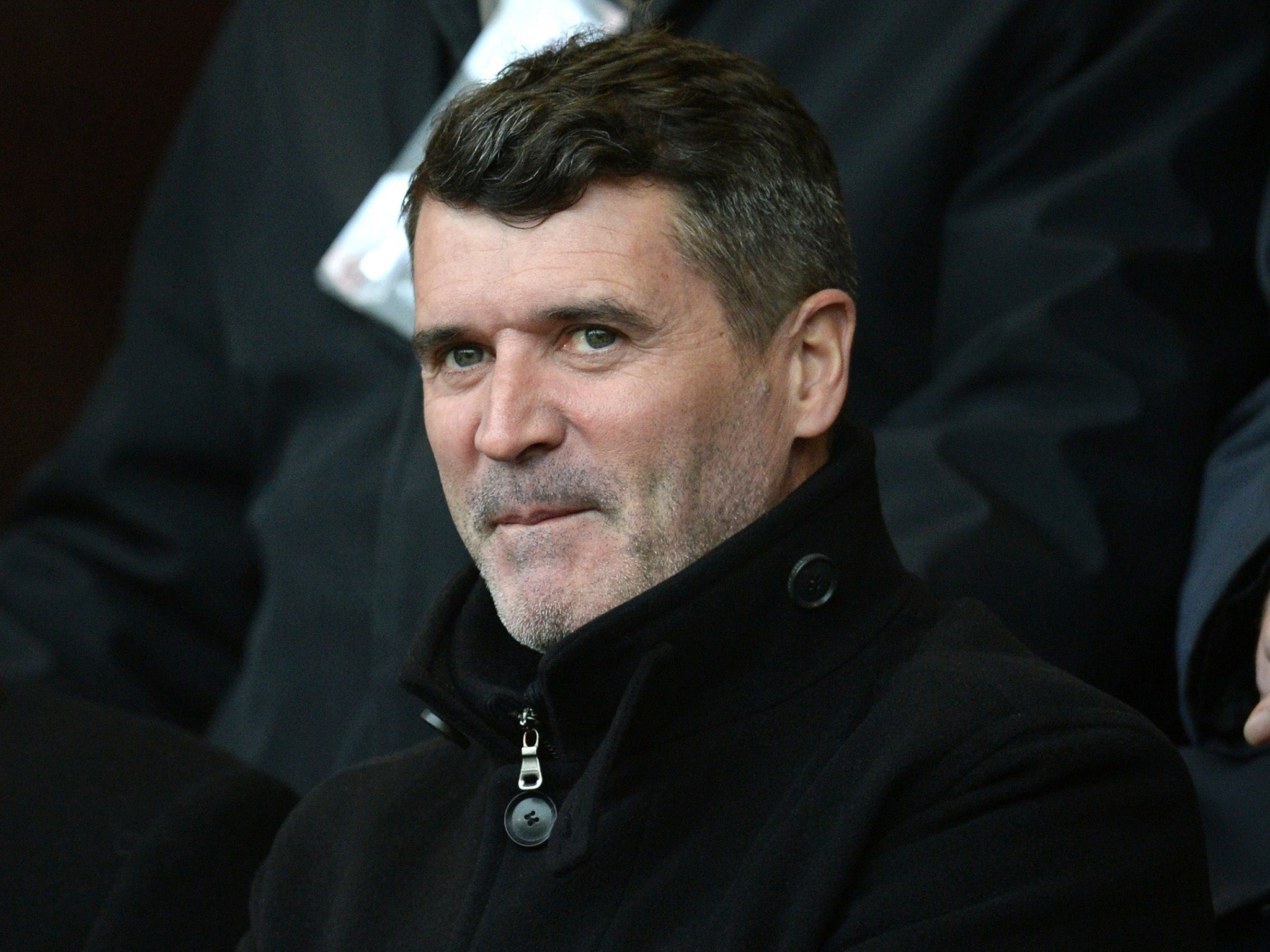Have Steve McClaren and Sam Allardyce been doomed from the start, just because Newcastle and Sunderland are in the north?
The divide between Premier League teams in London and the north appears to be growing, as Alex Keble examines

Your support helps us to tell the story
From reproductive rights to climate change to Big Tech, The Independent is on the ground when the story is developing. Whether it's investigating the financials of Elon Musk's pro-Trump PAC or producing our latest documentary, 'The A Word', which shines a light on the American women fighting for reproductive rights, we know how important it is to parse out the facts from the messaging.
At such a critical moment in US history, we need reporters on the ground. Your donation allows us to keep sending journalists to speak to both sides of the story.
The Independent is trusted by Americans across the entire political spectrum. And unlike many other quality news outlets, we choose not to lock Americans out of our reporting and analysis with paywalls. We believe quality journalism should be available to everyone, paid for by those who can afford it.
Your support makes all the difference.On a number of occasions already this season Steve McClaren has strolled off the St James’ Park pitch to a chorus of boos, his furrowed brow conjuring flashbacks to those brolly-wielding days at Wembley. Across the North East in Sunderland, Dick Advocaat - baggy eyed and downtrodden – has already made his exit speech. It was a familiar sight for football fans in the North East.
This weekend is the first Tyne-Wear derby of the season and for the fourth year in a row it is being billed as a relegation six pointer. Newcastle versus Sunderland is always a thrilling affair, but in recent years the matches are more battle cries in a mud pit than football of craft and guile, epitomising the dreary recent history of both clubs.
The reasons for the slow degradation of football in the North East are complex, but the pattern is clear: of the last 15 clubs to be promoted to the Premier League only one – Hull City – has been from the North. In 2015 Sunderland and Newcastle have earned a combined 40 points from 56 games, four fewer than Leicester City alone. Ask fans of either club and they will cite an uncaring attitude, overpaid players and, in Sunderland’s case, rumours of a drinking culture as primary reasons for the on-going slump.
However, a quick glance at the 2015/16 Premier League table offers a startlingly simple hypothesis for why crisis seems so prevalent at Sunderland and Newcastle. The current bottom three clubs are all from the Midlands and the North East, whilst the top four consists of clubs from London, Liverpool, or Manchester. Is geography the main reason for continued misery in the industrial North, and if so, does that mean that new managers, from McClaren to Sam Allardyce, are doomed from the start?
The financial might of the capital appears to be sucking football towards London and away from areas seen by many as less desirable. As is evident from the volcanic eruption of gleaming metal structures across London’s sky line, the City’s economic power dwarfs all others. It is trendy, glamorous, and saturated in money: sharing so many of its core values, it is no surprise that the Premier League flourishes there.
London hosts four of the top 25 richest clubs in the world (more than any other city), and the pattern of dominance is growing. In the all-time points table for the Premier League era, eight of the top 20 clubs are from London, including three of the top five. In records up to 1993, they hold only four spots in the top 20, and one in the top five.
That the sport should be dragged to London and drained out of the North East is reflected largely in the economic disparity between the two areas (the average household wealth in the South East is more than twice that of the North East), but also in the desirability of each location for new recruits.
Firstly, operating in London brings huge economic advantages that have been exacerbated by Financial Fair Play (FFP). Matchday and commercial revenues are arguably the most crucial factor in determining the expansionist capacities of ambitious clubs, and London holds a large advantage over the North East in this department. Newcastle may attract more than 50,000 fans to each game, but their matchday takings (£26m) are less than Tottenham’s (£35m) or Chelsea’s (£71m), despite boasting a greater stadium capacity.
Since both Newcastle and Sunderland have spent handsomely on transfers and wages in recent years, a financial gap between cities may seem like an unlikely cause of the chasm, but in fact their geographical disadvantage may be playing a large role in their overpriced signings and overpaid staff.

In the league table of net transfer spend over the past five seasons, Newcastle lie 7th and Sunderland 8th; they are 8th and 10th respectively in the player salary table. How has this happened? The short answer may simply be that, as numerous former managers have hypothesized, players simply do not want to live and play in the North East. As a result, players are offered inflated salaries to tempt them up North, which in turn creates a squad consisting largely of players driven more by money than ambition; in such a culture, drab relegation battles become an inevitability.
In his recent autobiography, Roy Keane said “Sunderland is pretty bleak”, and that players “wanted compensation for the cold and dark nights”. Gary Neville recently asked in his Telegraph column: “when was the last time a really top player played at Newcastle, or Sunderland, or signed for one of those clubs? Does any top player now want to go and live in Newcastle or Sunderland or Middlesbrough?” This sentiment was echoed by Gus Poyet, who claimed that “when you give certain types of players the option of going to London or the North East in the same conditions, 99 from 100 will choose London”.

If that is true, then what personality is reflected in that rare 1%? Perhaps the eternally cyclical headlines - sauntering defenders in disarray, gutless displays on rainy afternoons, and an infamous drinking culture at Sunderland – offer us the most likely answer. Skim read the squad list of both North East clubs and examples of uncaring players are everywhere in sight. The Secret Footballer has confirmed these suspicions on numerous occasions: “there are problems at Sunderland – big problems. They have too many players who do not have enough respect for the game”.
English football has traditionally been dominated by the North. The world’s oldest football club was Sheffield FC (founded in 1857), and the first Football League of 1888 contained entirely clubs from the Midlands and Lancashire. Since its inception, 79 of the 116 titles have been won by Northern teams. But if you remove Liverpool and Manchester from the recent statistics – two vast cultural and economic cities that buck the trend in terms of perceptions of the North – then no team North of London has finished in the top five for 12 years.
The gap between rich and poor is ever-expanding in our post-FFP world, and as it does it is London – prosperous, trendy, and desirable – that inflates and bulges until it dominates the English landscape. Sunderland’s and Newcastle’s combined points tally of nine points from 17 games reflects Northern football’s rapid decline, despite the passion and loyalty of its enormous fan base. The task facing Sam Allardyce is monumental.
Join our commenting forum
Join thought-provoking conversations, follow other Independent readers and see their replies
Comments